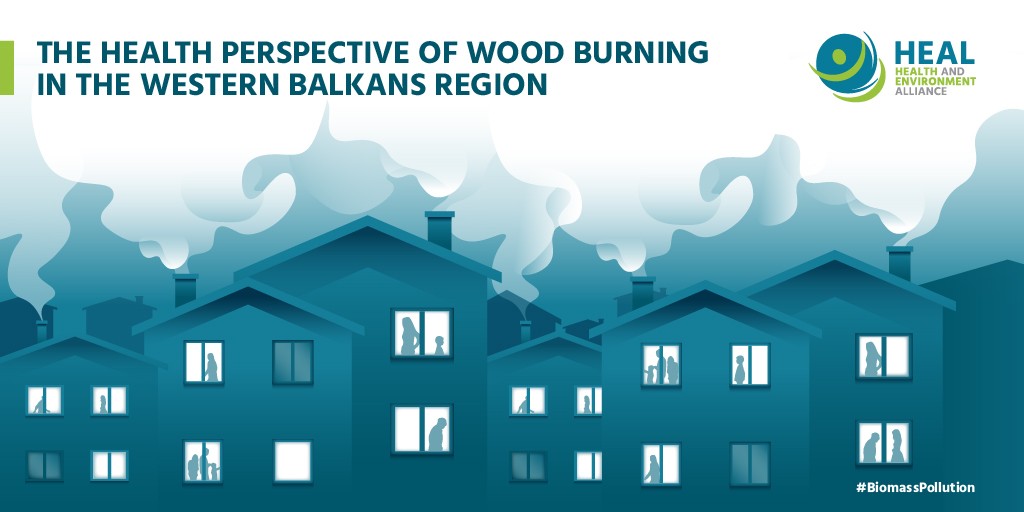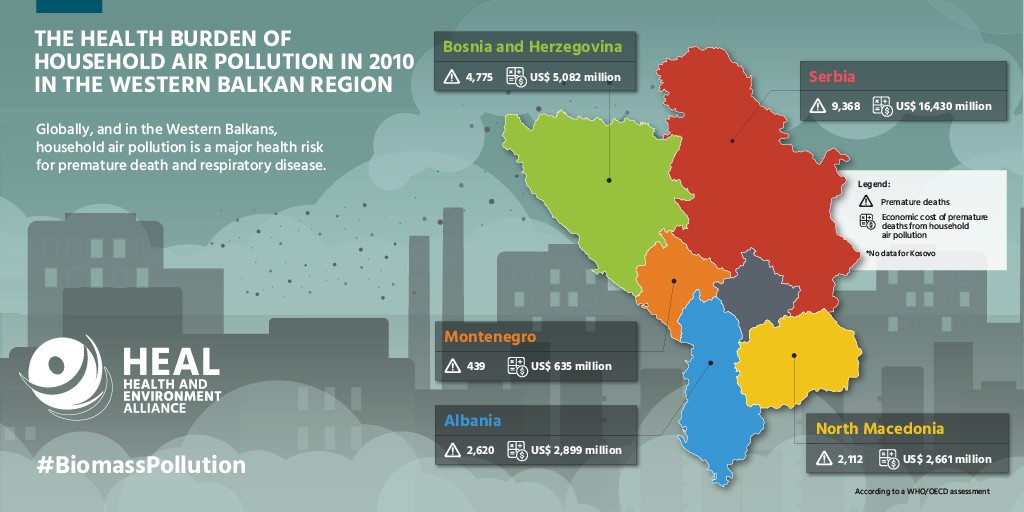Climate change, environmental pollution and biodiversity loss affect people’s health and generate multi-billion-euro economic losses, as a briefing produced by HEAL Poland under the patronage of the Institute of Water Economy and Meteorology of the National Research Institute and the Polish Federation of Asthma, Allergy, and COPD Patients Associations highlights.
The Health and Environment Alliance (HEAL) has today launched a briefing exploring the public health threat of wood-burning in the Western Balkans, as a major contributor to air pollution in the region. The briefing presents evidence-based arguments on wood burning and scientific data to support decision-making, as the Western Balkans and the EU shift to a carbon-neutral and healthy future.

Burning of biomass is often portrayed as ‘natural’ or climate friendly. Instead, because of the air pollution released, the burning of wood and other biomass causes serious health problems, such as stroke, heart diseases, lung cancer, pulmonary diseases and contributes to accelerated climate change.
With 42% of homes in the Western Balkan region using wood for heating, the health impacts are considerable.
“No matter what we burn, we create pollution – that also goes for burning wood. It is really quite simple: burning wood pollutes the air we breathe, both indoor and outdoor. It makes people sick, aggravates chronic diseases and even leads to numerous unnecessary early deaths. From a health-perspective, the Western Balkans urgently need to transition to energy-efficient, non-polluting and healthy household heating”, said Vlatka Matkovic, Senior Health and Energy Officer at HEAL.

On the road to a healthy energy future, energy poverty is a major challenge for the Western Balkans that cannot be ignored. A high share of the population struggles to or is unable to keep their home adequately warm, with many burning any type of solid fuels such as discarded furniture, wood scraps, coal and waste.
Ms. Matkovic added: “Many households in the Western Balkan region rely on wood to keep warm or are struggling to heat their homes in the first place, which makes this transition a bigger challenge than elsewhere – but that means policy-makers should be all the more decisive to start it now and run it intelligently, making the health of people in the region the priority.”
The briefing also puts forward an initial analysis on the opportunities and challenges around improving woodburning technology. While there is some evidence that using a newer wood stove, using an ecologically certified stove, or burning solely dry wood can lead to lower household air pollution, those changes can be cancelled out by the overall increase in the use of biomass burning for heating, which increases air pollution locally.
Vlatka Matkovic commented: “We often hear the argument that woodburning in new stoves would cut the pollution. But investing money in replacing stoves is likely not to deliver on pollution reduction or anticipated health and climate co-benefits. Instead we need to put money into energy savings and insulating people’s houses, to both improve people’s health and elevate energy poverty, reducing energy bills.”
Read the full report here
Read the press release and report in Serbian.
Read the report in Albanian.

